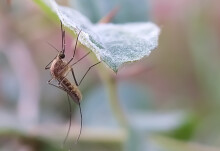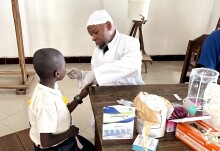

Strep strike back
Global research network to combat deadly Strep A infections
Imperial and US scientists are spearheading a multi-institution network to research bacterial cause of sepsis and heart damage in children.



Global research network to combat deadly Strep A infections
Imperial and US scientists are spearheading a multi-institution network to research bacterial cause of sepsis and heart damage in children.


T cells may provide more durable protection against Omicron than antibodies
New review suggests T cells are more robust against ‘Omicron breakthroughs’ than antibodies, offering fresh insights for COVID-19 vaccine development.


Morphine treatment and cheating sparrows: News from Imperial
Here’s a batch of fresh news and announcements from across Imperial.


Immunosuppressing medicine can be interrupted to boost COVID-19 vaccine response
Interrupting treatment of immunosuppressing medicines for two weeks can significantly improve antibody immunity provided by COVID-19 booster vaccines.


Engaging heterosexual men more effectively could slash HIV infections in Uganda
A study looking at 15 years of HIV transmission and suppression in Uganda reveals how closing gender gaps in treatment could slash infection rates.
 1
1


New hub to gather data on diseases spread by mosquitoes, ticks and other vectors
A new £1.5m hub will support the sharing of data and findings on ‘vector-borne’ diseases among the UK research community and with policymakers.
 2
2


Imperial Fungal Science Network/Autumn Symposium 2023
Celebrating the diversity of fungal science


UK Government backs Fleming Centre to fight threat of drug resistant infections
The UK Government has committed £5million in seed funding to support a joint Imperial initiative to fight antimicrobial resistance.


Pandemic learnings and pest control developments: News from Imperial
Here’s a batch of fresh news and announcements from across Imperial.


Mosquito modification programme aiming to eliminate malaria receives US$15m
A global programme that aims to modify mosquitoes so they are unable to transmit malaria has received a grant to fund its next phase of expansion.